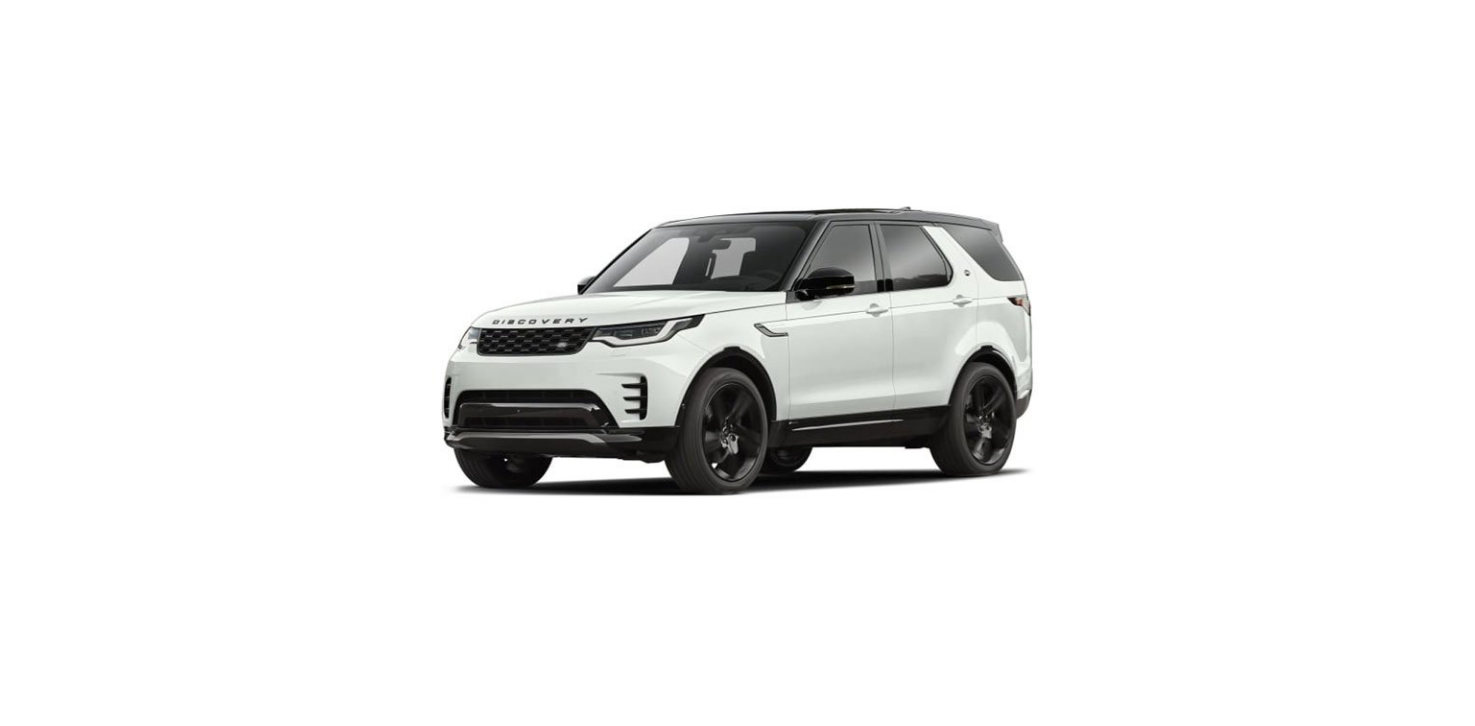
2022 Land Rover Discovery Front Seats

MANUAL FRONT SEATS
Do not adjust the seat while the vehicle is moving. Doing so could cause a loss of vehicle control and personal injury.
Take care when retrieving items that have fallen down the side, back, front, or underneath the seat. Sharp objects may be present in these areas, which could present a risk of injury. Always stop the vehicle before retrieving items.
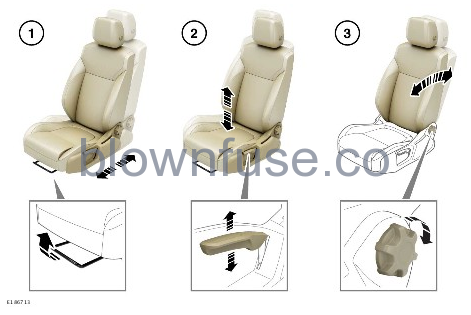
Adjust the position of the manual front seats as follows:
- Forward and rearward adjustment.
- Height adjustment.
- Seatback angle adjustment.
The position of the head restraints can also be adjusted. See HEAD RESTRAINTS OVERVIEW.
ELECTRIC FRONT SEATS
Do not adjust the seat while the vehicle is moving. Doing so could cause a loss of vehicle control and personal injury.
Take care when retrieving items that have fallen down the side, back, front, or underneath the seat. Sharp objects may be present in these areas, which could present a risk of injury. Always stop the vehicle before retrieving items.
Make sure to keep any part of the body away from moving components. Failure to do so could potentially result in serious injury or death in the event of a sudden stop or collision.
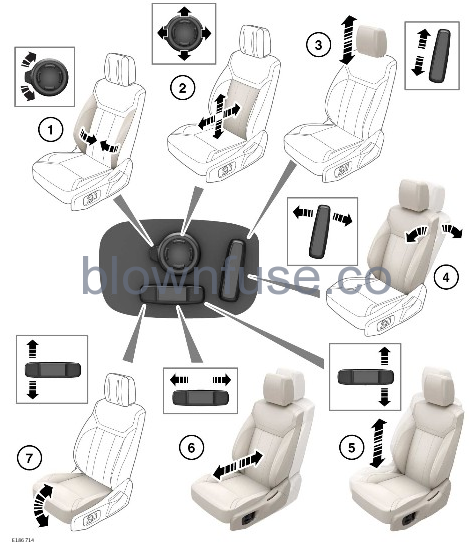
Adjust the position of the electric front seats as follows:
- Bolster inflate and deflate.
- Lumbar support.
- Head restraint height.
- Seatback angle.
- Seat height.
- Forward and rearward position.
- Cushion tilt.
RESTRICTED FRONT SEAT TRAVEL
If seat movement stops unexpectedly during adjustment, check for, and remove any obstructions. Obstructions could potentially cause a loss of vehicle control if not appropriately stored, potentially resulting in injury or death.
If front seat travel is restricted or obstructed, remove the obstruction and reset the seat adjustment mechanism, as follows:
- Operate the seat switch again to continue the stalled adjustment.
- When seat movement resumes, hold the seat switch until the end of travel in that direction has been reached.
- Seat adjustment can now be carried out as normal.
If no obstructions can be found, and normal seat adjustment still cannot be carried out, contact a retailer/authorized repairer.
SITTING IN THE CORRECT POSITION
Riding with a reclined seatback increases the chance of serious or fatal injuries in the event of a collision or sudden stop. Reclining the seat greatly reduces the protection of the restraint system, i.e., seat belts and airbags. Seat belts must be snug against the hips and chest to work properly. The more the seatback is reclined, the greater the chance of an occupant’s hips sliding under the lap section of the seat belt. The occupant’s neck could also strike the shoulder belt. Drivers and passengers should always sit well back in the seat, be properly belted, and have the seatbacks in an upright position.
Never adjust the driver’s seat while the vehicle is moving. Any sudden or unexpected movement of the seat could cause a loss of vehicle control, potentially resulting in an accident.
The seat, head restraint, seat belt, and airbags all contribute to the protection of the user. Correct use of these components gives greater protection. Therefore, always observe the following points:
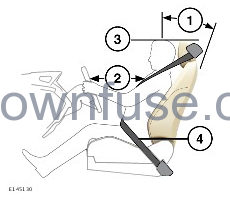
- Sit in an upright position, with the base of the spine as far back as possible. To achieve the optimum benefit of the seat belt in the event of an accident, do not recline the seat excessively.
- Do not move the driver’s seat too close to the steering wheel. Ideally, a minimum distance of 10 in (254 mm) is recommended between the breastbone and the airbag cover of the steering wheel. Hold the steering wheel in the correct position, with arms slightly bent.
- Adjust the head restraint so that the top of the head restraint is above the centerline of the head.
- Position the seat belt so that it is midway between the neck and shoulder. Fit the strap tightly across the hips, not across the stomach.
Make sure that the driving position is comfortable, enabling full control of the vehicle.
OLDING ARMREST
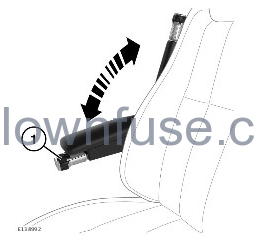
Use the adjuster wheel (1) to set the required height for the armrest. The folding armrest can be stored by moving it to the vertical position.
SEAT POSITION MEMORY
Before activating the seat memory, make sure that the area immediately surrounding the seat is clear of obstructions. All occupants should be clear of moving parts to avoid personal injury.
When a preferred driving, door mirror, and steering wheel position has been reached, the settings can be stored for future use. See ADJUSTING THE STEERING WHEEL and DOOR MIRRORS.
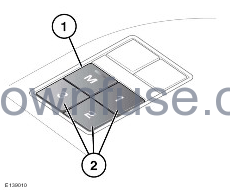
- Press the memory store (M) button to activate the memory function.
- Press one of the preset buttons within 5 seconds to store the current settings. The message MEMORY (1, 2, or 3) SETTINGS SAVED displays in the instrument panel, and a chime sounds to confirm that the settings have been stored.
NOTES
A driving position only stores during the 5-second active period.
NOTESAny existing settings are over-written when storing a new memory position.
- Press the relevant preset button to recall a stored position.
The memory function for all passenger seats does not trigger any messages in the instrument panel.
EASY ENTRY AND EXIT
When easy entry or exit is enabled, the driver’s seat automatically lowers when the ignition is switched off and the door is opened. Upon returning to the vehicle, when the driver’s door is closed and the ignition is switched on, the seat returns to its previously set position. The easy entry or exit feature can be enabled or disabled using the Vehicle Settings instrument panel menu. Select Convenience Features, then On or Off from the Easy Entry/Exit menu. See INSTRUMENT PANEL MENU OPERATION.
